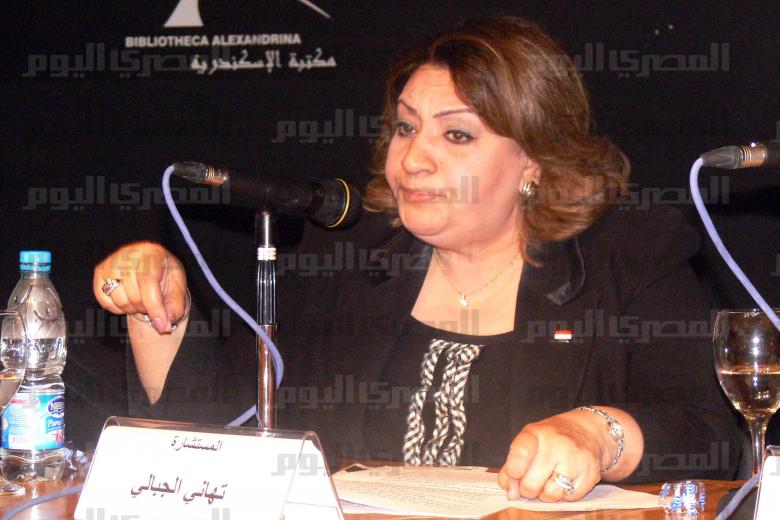 Human rights organizations began a signature campaign Sunday in solidarity with Tahani al-Gebali, former deputy of the Supreme Constitutional Court, who was ousted from the court along with seven other judges.
Human rights organizations began a signature campaign Sunday in solidarity with Tahani al-Gebali, former deputy of the Supreme Constitutional Court, who was ousted from the court along with seven other judges.
A statement issued by 25 NGOs said the decision to eliminate Gebali and the other judges’ positions was in accordance with the recently approved Constitution, and is the first of its kind in the history of the Egyptian judiciary.
Gebali has filed a challenge against the new Constitution and its stipulations on the court’s system of adjudication.
In a press conference Tuesday, Gebali said the lawsuit, which she filed three days ago, demands the annulment of the Constitution and the cancellation of the stipulation requiring the court to rule on the constitutionality of laws after the legislature approves them.
The organizations that signed the statement said that, for the first time in the judiciary’s history, the president is allowed to appoint the head and deputy head of the SCC.
The signatories also objected to a provision in the Constitution that restricts the time period in which the court may decide on the constitutionality of elections laws to 45 days after they are issued by the legislature. If the court does not rule on them within that time period, the laws are considered to be approved.
The Constitution states that presidential, legislative or local election laws are not subject to Article 175, which says the SCC “exclusively undertakes the judicial control of the constitutionality of the laws and regulation.”
The organizations considered the abolition of the subsequent supervision that the court performs as an assault on the rights of the Egyptian people, not only the court.
Gebali is the first Egyptian woman to hold a post in the judiciary. She was appointed by a presidential decree on 22 January 2007. Later that year, 32 other women were appointed as judges in other jurisdictions.
The NGOs signing the statement saw the Constitution’s elimination of seven SCC judges as an assault on the principle of separation of powers, and another link in a chain of assaults on the judiciary.
The organizations stressed their full solidarity with Gebali in any legal action she may take to defend her rights in particular, and the rights of women to hold judicial positions in general.
“Women of this country have been faced for years with a system of thought hostile to women as fully competent human beings and citizens with protected rights,” the statement read.
The statement referred to the resolution of an emergency State Council general assembly session held in February 2010 to reject the appointment of female applicants, even though they had graduated from law schools at the top of their class.
Organizations that signed the statement include the National Council for Women; the Cairo Center for Development and Human Rights; the Appropriate Communication Techniques for Development, or ACT; the Center for Egyptian Women’s Legal Assistance; and the Egyptian Initiative of Women Lawyers.



